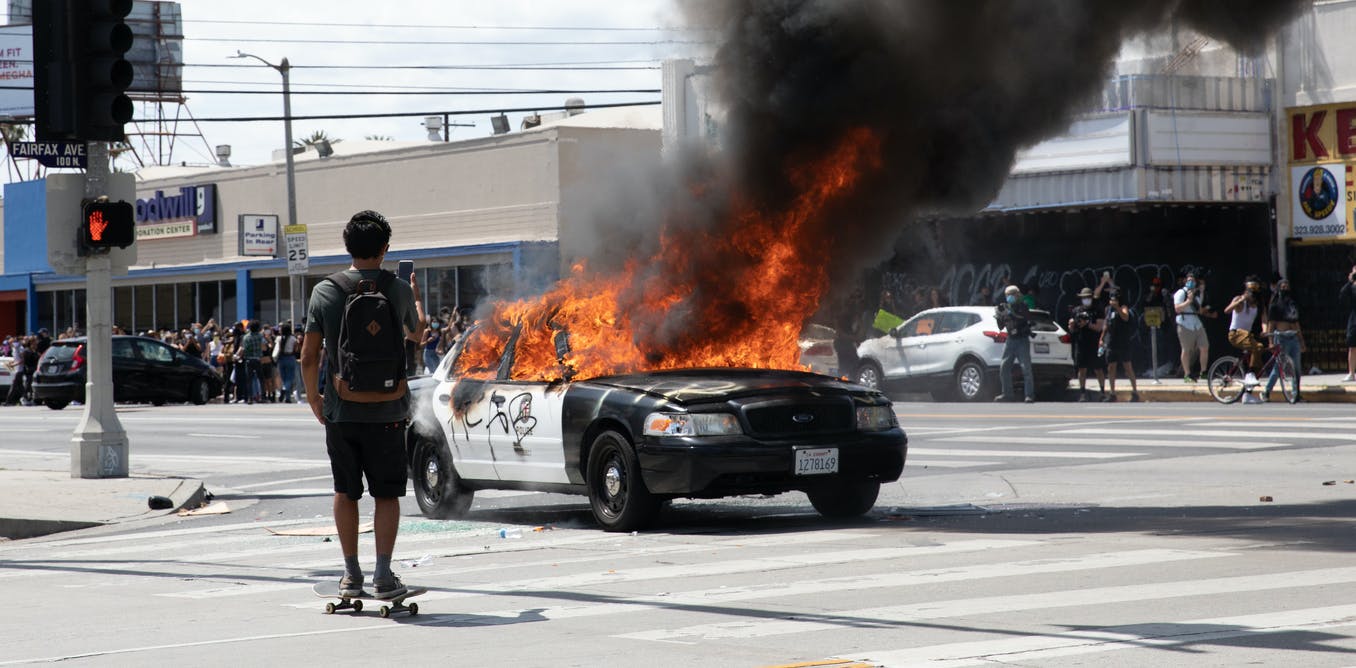The author is arguing that
-multigenerational oppression of black people
-permanant underclass of mostly poc formerly incarcerated people w/o access to employment
-easy access to guns
-sympathy of public to anti police actions
Creates a situation where the US is likely to developed a non centralized anti police insurgency. The author then argues that the US should reform policing to prevent such an insurgency.



Analysts fears a resurgence of secterian violence in the former British colony as centuries old ethnic conflicts has intensified following a string of summary executions of members of the black minority carried out by the regime's security forces.
Fears of increased violence are furthered by the declining humanitarian situation in the country caused by covid that has left millions of U.S. America citizens dependent on aid.
The nation's last civil war is widely regarded to have represented a high-point in the ethnic conflict, though many analysts regard ethnic concerns to have been a convenient justification by the central government to militarily suppress political dissent from the pseudo-aristocratic planter class in the southern region of the country. Though state media sources insist that hostilities ended with the formal collapse of the "Confederacy" (a rival government formed by an alliance of regional warlords, which drew political power from the planters), efforts towards reconciliation and 'reconstruction' have been considered unsuccessful and were ultimately largely abandoned.
Humanitarian efforts from the international community are rarely even attempted, as the regime was able to leverage their position following the Second World War to obtain a veto in the UN Security Council, which they have shown consistent willingness to use in service to geopolitical interests and limit external interference. Ultimately only time can tell whether peace can take root in this war-ravaged land.
:gold-communist: